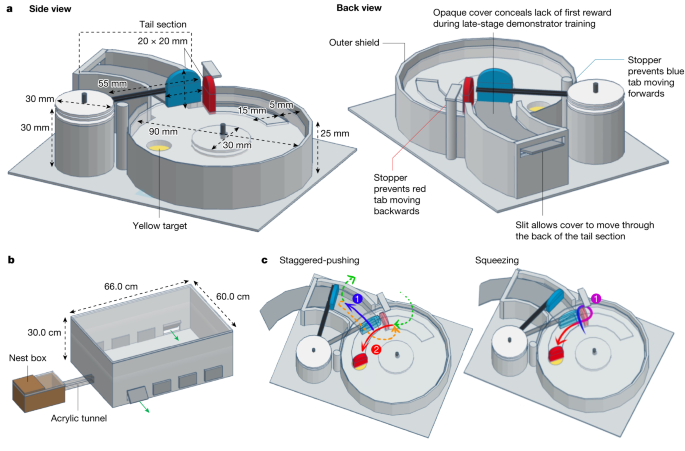According to a new study, published last week in Proceedings of the Royal Society B, bumblebees (Bombus sp.) can perform cooperative tasks that transcend the expected capacity of their tiny brains.
This is the second time this year that research has revealed the feats of these friendly creatures, after a study published in Nature in March gave us surprising details of their complex social behavior.
These findings, which come amid growing controversy about the possible consciousness of insects, suggest demonstrations of collective intelligence similar to humans, specifically in bumblebees.


In the course of the study now published, a team led by Olli J. Loukola, a researcher at the University of Oulu in Finland, found that bumblebees trained to perform tasks together to earn a sugary reward were more likely to wait for their partner before returning to the task than bees that performed them alone.
Loukola and his colleagues found that when a bee's partner was prevented from entering a test arena, it took them longer to push the door, or blocks of Legos, than the control bees, who had learned to push it themselves and who immediately tried to access their reward without help.
Compared to animals with large brains, this feat was not expected of bumblebees.
Recent laboratory experiments show that bumblebees should not be underestimated, as they can perform countless tasks, from teaching other people to solve problems, counting to zero, doing basic math equations and even learning tasks step by step.
In other tunnel experiments, bees hesitated near a door that hid their reward until their training partner arrived or returned to the door after searching for their partner when he appeared in the adjacent tunnel.

It is complicated to understand how bumblebees could have developed this ability to cooperate because, as the researchers note, they tend to act as lone rangers when foraging in the wild.
"The findings of the study challenge conventional notions about insects, and the ability to work together towards a common goal is present even in the miniature brain of bumblebees," says Loukola, in a statement published on the university's website.
The authors of the study now published suggest that this cooperative behavior is widespread in the animal kingdom to help their partners survive when necessary.
Cooperation is a widespread phenomenon observed in several species, from primates to dolphins, and from fish to social insects. Understanding the cognitive mechanisms underlying animal cooperation has been a topic of growing interest in recent years in science.









